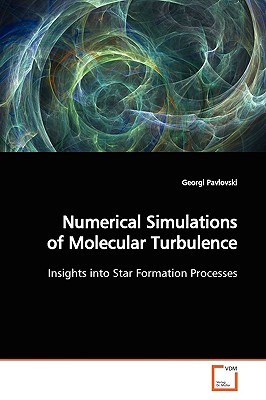
- We will send in 10–14 business days.
- Author: Georgi Pavlovski
- Publisher: VDM Verlag
- ISBN-10: 363913527X
- ISBN-13: 9783639135275
- Format: 15.2 x 22.9 x 1.1 cm, softcover
- Language: English
- SAVE -10% with code: EXTRA
Reviews
Description
Over the last thirty years, substantial evidence has accumulated suggesting that supersonic turbulence dominates the motion of gas within molecular star-forming clouds, and is the main factor determining their internal density and velocity structure. The present work has aimed to test the extent to which simulations employing isothermal equation of state correctly model the behaviour of molecular turbulence, and investigate the impact of turbulence on molecular dynamics. To achieve this, a numerical scheme is constructed, which couples the most important chemical processes with a general purpose hydrodynamical code (ZEUS-3D). It is found that the isothermal simulations reproduce correctly the dynamics of the molecular turbulence, and can be used to predict properties of the molecular emission. It is discovered that, given the supersonic dynamics, the chemical processes can be significantly accelerated, implying that molecular clouds may be undergoing both rapid dynamical and chemical changes. This work should be interesting to astronomers specialising in the area of star formation, and anyone who wants get familiar with the star formation theory.
EXTRA 10 % discount with code: EXTRA
The promotion ends in 16d.21:59:09
The discount code is valid when purchasing from 10 €. Discounts do not stack.
- Author: Georgi Pavlovski
- Publisher: VDM Verlag
- ISBN-10: 363913527X
- ISBN-13: 9783639135275
- Format: 15.2 x 22.9 x 1.1 cm, softcover
- Language: English English
Over the last thirty years, substantial evidence has accumulated suggesting that supersonic turbulence dominates the motion of gas within molecular star-forming clouds, and is the main factor determining their internal density and velocity structure. The present work has aimed to test the extent to which simulations employing isothermal equation of state correctly model the behaviour of molecular turbulence, and investigate the impact of turbulence on molecular dynamics. To achieve this, a numerical scheme is constructed, which couples the most important chemical processes with a general purpose hydrodynamical code (ZEUS-3D). It is found that the isothermal simulations reproduce correctly the dynamics of the molecular turbulence, and can be used to predict properties of the molecular emission. It is discovered that, given the supersonic dynamics, the chemical processes can be significantly accelerated, implying that molecular clouds may be undergoing both rapid dynamical and chemical changes. This work should be interesting to astronomers specialising in the area of star formation, and anyone who wants get familiar with the star formation theory.


Reviews